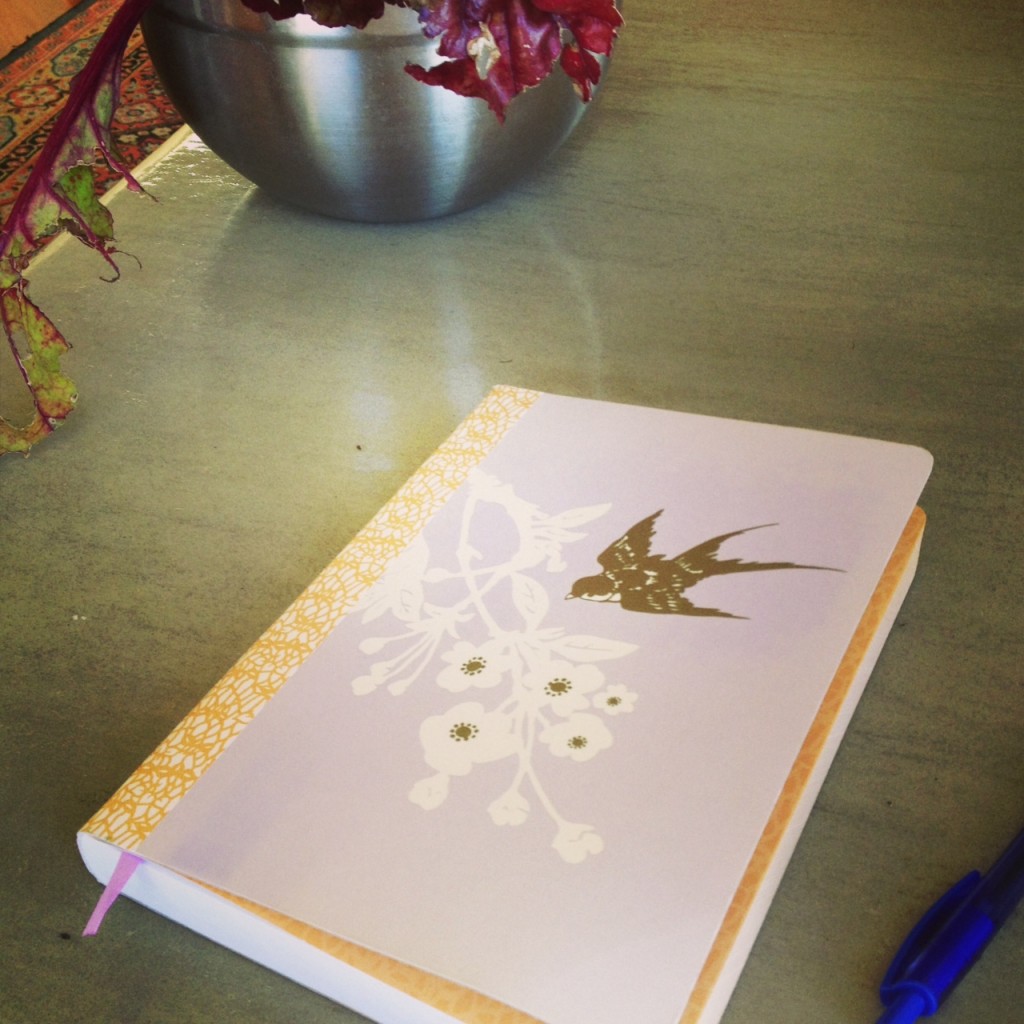You don’t have to be a writer to use one of the best tools ever invented for healing digestive issues.
A journal.
There are two ways to use journals to heal yourself.
1.You can use a food, mood and symptom journal.
2.You can use a traditional journal to release emotions from your body.
If you don’t do either, my advice is to pick one to start with. Don’t overwhelm yourself by taking on two new practices. Pick the one that resonates most.
If you already have one type of journaling practice, then try another one on for size.
Journaling is like free, convenient therapy when you need it.
Below, I’ll discuss tips, tricks and resources to make both types of journaling easy. And I’ll explain exactly why this practice is so valuable and transformative.
A note to perfectionists: You don’t have to be 100 percent consistent for journaling to work. But a certain level of consistency is key.
It will take practice to make this part of your routine, but your effort will pay off a thousand times over as you discover things about yourself you never knew before.
Building awareness: a minute meditation
A food journal serves a much deeper purpose than just keeping track of what you ate and how you felt afterwards. It is a minute-long meditation on your food and body. It helps build awareness about what you’re eating, when and why. Over time this helps sharpen intuition on how food will effect you.
This is the most common complaint I hear from people: “Everything makes me sick and I’m afraid to eat anything.”
Stress and fear over food causes people to disassociate from their body when they eat. They learn nothing from the experience, and it just adds to the trauma. Food journaling prevents this harmful habit and alleviates the stress and confusion of eating,
It turns mysterious reactions into obvious patterns over time. Food journals are the perfect tool to stay conscious and present to what you eat. Even a negative experience is valuable because teaches you something vital.
So if you can’t resist that cake, eat it and write about it too! How did you feel before you ate it and what was it like after?
Food journals
There are three ways to keep a food journal. Hopefully one of them will appeal for it’s convenience and fun. Technology provides new solutions.
1. Carry a small notebook and write down what you ate and how you were feeling before and after. Simple and low tech. Decide what you are going to record beforehand so you don’t have to think about it.
2. Use your smart phone to take photos of what you eat. Then email those photos to yourself with a description of how you felt emotionally and physically. This may provide insight into how your mood effect digestion. Do you feel the same way after eating the same food on different days? File all of your emails in a folder called “food journal” for easy reference.
If you want to crunch data in a fun way, create a collage of what you ate in a day or in a week.
Use a free service like Picmonkey.com to make a collage like this one.
Taking this scientific approach to observing your diet and symptoms will make you feel more in control. You can share this data with an alternative healer to help you spot trends over time. This can be more accurate than a food allergy test.
3. Lastly you can use MY FITNESS PAL, a FREE food journal application on your smart phone or computer. Download My fitness pal, on your phone, or go to www.myfitnesspal.com online. It will tell you how many calories you’ve consumed, store your info in one place, create graphs of how much carbs, fats and protein you’ve eaten in a week and let you add photos.
Journaling as a self coaching tool
There are several different methods of traditional journaling that can help you find clarity, build intuition, release toxic emotion and feel lighter.
1. Writing to release emotions. This is not a structured practice. Just pick up your journal when you feel the need. If you are feeling bad, journal about the thoughts in your head. Express your anger, release your fear and let go of your sadness.
Writing will help release emotion stored in your body, inside contracted muscles and from your heart. Letting go will help you heal, when you hold onto emotions without expressing them, they can manifest as physical pain.
After spilling toxic emotions, it helps to end the journal entry on a positive note with 3 things you’re grateful for.
Your journal is like a best friend, always there for you, ready to listen. The way you feel is always legitimate, Honor it and express it without guilt, shame or reluctance.
2. Writing as a visioning exercise. You can use your journal to envision the good things you want to see in life. Your deepest desires or visions for yourself should be vividly described and imagined. Visioning is one of the most powerful tools in healing. It harnesses the power of the mind to direct what’s happening in the body.
Journaling can be a text-only version of a vision board. Be clear about what you desire and don’t be surprised when it actually happens after you put it out there in a concrete way. This exercise will make you feel lighter and brighter.
3. Write a letter to the universe. In Writing Down Your Soul, an amazing book on journaling, the author suggests starting the journal entry as a letter (for example: Dear Universe). This can help break through the awkwardness of starting a new journal entry. I love this tip because it makes me like I’m having a conversation with something bigger than me.
4. Write morning page as soon as you wake up. This practice comes from Julia Cameron’s book The Artist’s Way. This practice is done upon waking and builds intuition and creativity like crazy because when you wake up you have more access to your subconscious mind. You write three pages straight without stopping. It doesn’t matter what you write as long as you don’t stop. It is this stream of consciousness that makes this writing exercise so powerful.
5. Ask big questions. Journaling will help bring clarity to your life. Ask questions like “what am I scared of?” “What is the best case scenario?” “Could I survive the worst case scenario?” “What am I supposed to learn from this?” “What should I do?” And don’t worry about answering them. Your subconscious mind will work on it behind the scenes and an answer will bubble up when you least expect it. You have deep wisdom inside of you and journaling is a key to accessing it.
I use journaling on a daily basis to help me process negative emotions and make stressors more manageable. When I write, compassion arises. I soften and revel in the feelings of comfort that come up.
Don’t rely on your memory to figure out how you eat or feel
Memory is our most unreliable tool when it comes to health, because it’s highly influenced by emotion. If you want accurate data then write it down. Same with how you’ve been feeling. When you get down it is hard to remember that you’ve also had good days.
Journaling helps you get acquainted with your body on several levels. And it’s a source of support and inner guidance.
Are you convinced to try it yet?
If not, what’s stopping you?
Maybe you should journal about it.





It’s been a busy week. I keep a detailed food journal. It has helped me stick to a stricter diet. In the beginning, I went through and highlighted all the things I wasn’t supposed to be eating. It was a lot more than I thought.